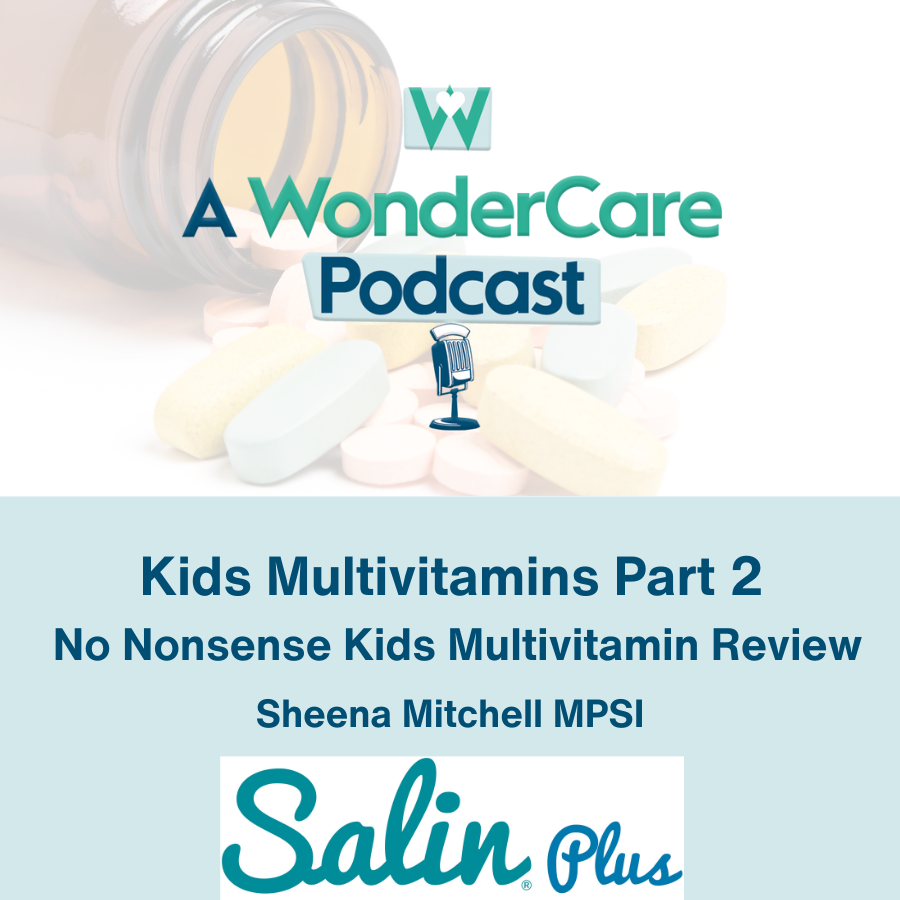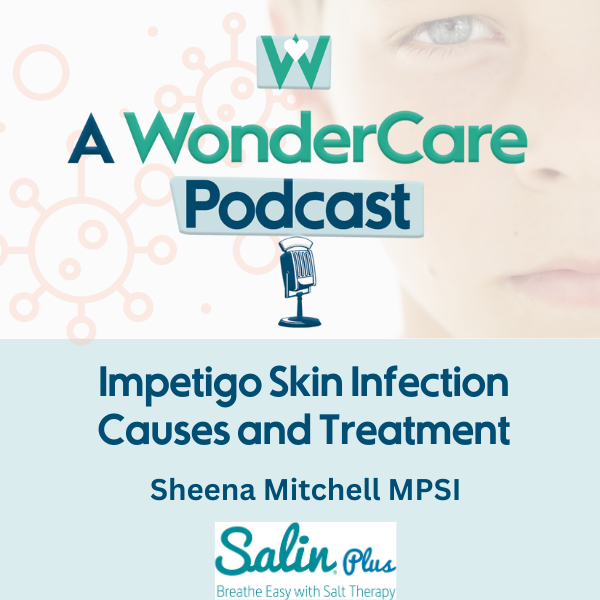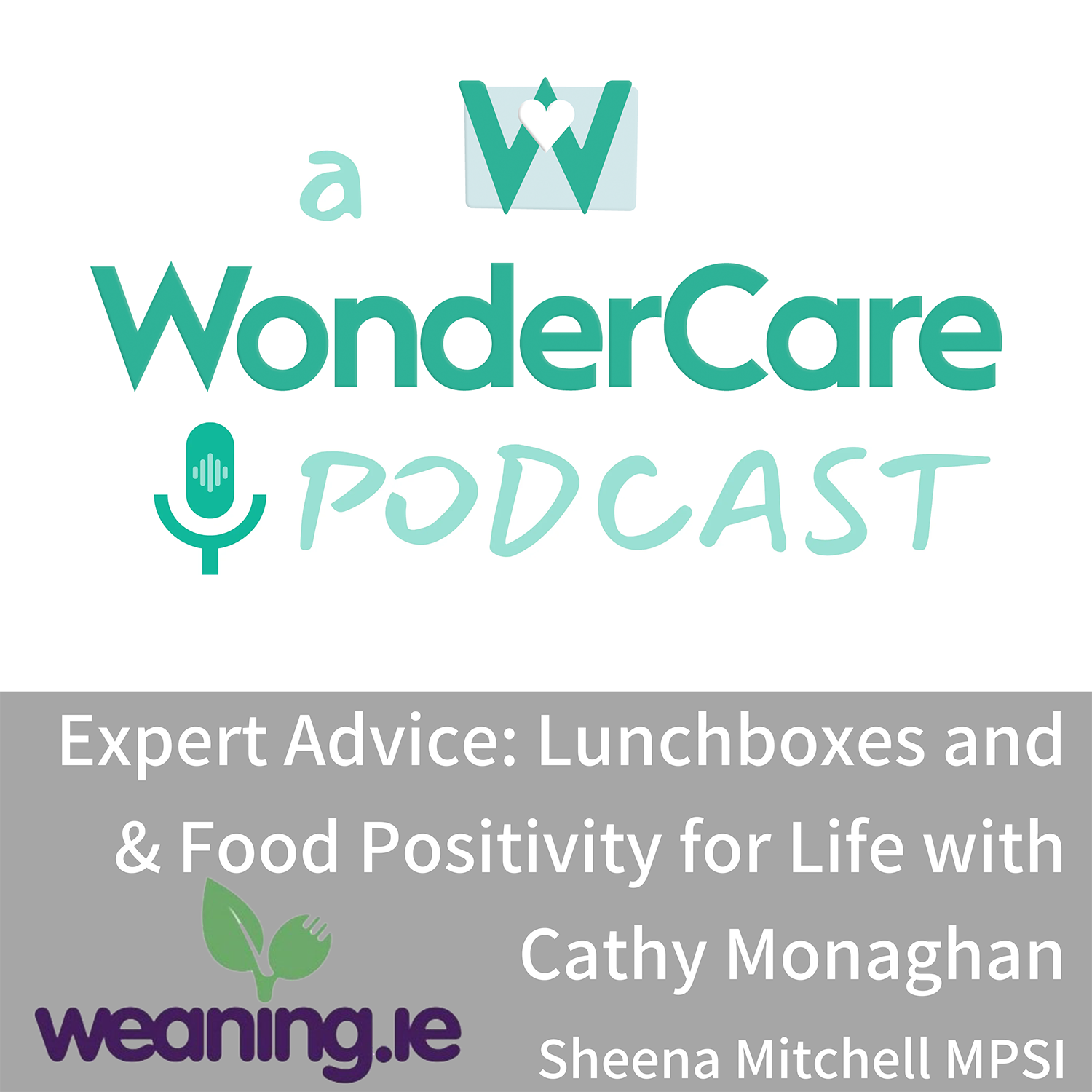Episode Transcript
Speaker 1 00:00:03 Hello and welcome to the Wonder Baba podcast. My name is Sheena Mitchell. I'm a pharmacist and mom of three. I combine healthcare and practical advice to help you on your parenting journey. If you enjoy listening to a Wonder Baba podcast, I'd be really grateful if you could follow or subscribe and leave a review. It really helps to support the show. Thank you. I am delighted to partner with one of my all-time favorite products, Sale Plus. This is the world's first 100% natural dry salt therapy device. It's clinically proven to relieve a wide variety of allergens and respiratory conditions. This salt therapy method has been trusted for generations and has become hugely popular worldwide. As more and more people recognize the superb results achieved from a natural and non-invasive method, this device will help you breathe easier and sleep better. This week I'm talking all about RSV and bronchiolitis.
Speaker 1 00:01:00 Bronchiolitis is one of the leading causes of hospitalization in children in the zero to four year age group. RSV is the respiratory sensual virus. Infection with RSV can cause inflammation and irritation of the bronchials, which are the small little airways in your baby's lungs. The lungs are obviously a vital part of delivering the right amount of oxygen to your baby's bloodstream, which allows them to continue with healthy bodily function. When RSV infection is present, the bronchials become really inflamed and irritated, and it can make it really difficult for your child to breathe. There are certain children that would be more at risk of ending up in hospital from an RSV infection, and those are babies that were born prematurely. Babies or children with respiratory disease, babies or children who suffer with immune issues and some others. Bronchiolitis is a condition which describes inflammation and irritation in your baby's lungs, and RSV is the leading cause of this. Before I go any further, I thought it might be useful for you to hear what a bronchiolitis cough sounds like. So have a listen to this sound, but obviously it is not intended to help with diagnosis at home. If you have any concerns about your child's health, remember to see their gp.
Speaker 1 00:02:24 So as you can hear there, the cough is persistent and dry. It can sometimes be so deep in their chest and so irritating that it can almost sound like this mucus down there. If you put your hand on your baby's chest, you'll feel the cough and crackling happening on their chest. Children with bronchiolitis often have a runny nose. In about 30% of cases, they'll also have fever. Of course, like many illnesses, it can be hard to feed a baby when they're suffering with bronchiolitis, especially for a few days after the illness. In severe cases, your child may have difficulty breathing and maybe squeezing. I really wanted to talk about this today because as I've mentioned on my Instagram at Wonderbar Care, the levels of RSV are significantly high this year. So just to put it in perspective, pre covid, we would've had very low figures for osv at this time of year.
Speaker 1 00:03:16 They were about three times as high as pre covid levels last year. So I'm just gonna talk about week 39, week 40 and week 41 stats. So for week 39 last year there was 101 cases and it was considered exceptionally high. This year there was 114 cases in week 40 last year there was 150 cases. This year in week 40, there was 171. In week 41, which is the week that ended on the 15th of October. Last year there were 222 cases. This year there was 177. So it's interesting because if the trend continues and with any look the rate of increase of RSV studies down now, it does kind of look like RSV has come and peaked daily. So I suppose we just have to hope and assume that it doesn't continue back on its upward trajectory. In either case, the figures from this year and last year are high and are a concern.
Speaker 1 00:04:16 The treatment of bronchiolitis is similar to a cold in that there's no direct treatment to kill the virus. It's really all about treating the symptoms. It usually clears itself up within two weeks and in most cases, a lot of minding and lots of extra attention at home is enough to take care of it. If you're able to continue to take care of your child at home, I recommend keeping an eye on them. This is one of the only times that I advise setting an alarm to actually wake you up in the middle of the night so that you can go in and check on your baby. The good news is you don't really have to wake your baby. You can go in and assess their breathing by watching their chest and listening to their breaths. You wanna ensure that their breathing is normal, that it's not too fast and it's not too labored.
Speaker 1 00:04:57 When you're feeding your baby, try and do it in the upright position. This makes it easier for them to breathe while feeding. Remember that in bronchiolitis, your baby will often have nasal congestion. So using something like a saline nasal spray before feeding them can help them to take their feet a little bit better because obviously they'll be breathing through their nose while they're feeding. Try and keep your child hydrated and keep an eye out for the signs of dehydration. Simple things like keeping an eye on the little soft spot on the top of your baby's head, making sure that's not sunk and making sure that they're having regular wet nappies and keeping an eye on how much they're drinking. Obviously it's tricker if you're breastfeeding, but you should be able to kind of see if you've got way more supply than they're actually taking. That might indicate a drop in demand.
Speaker 1 00:05:43 Another sign of dehydration is when your baby is crying with no tears. Keep an eye on their fever and if you want to know how to treat that, check out my Fighting Fever podcast. It's there. It was released a few weeks ago. Other things to do or make sure that people who smoke stay away from your child because smoking can really irritate the symptoms of bronchiolitis. Sometimes using a humidifier can be helpful. I use the Medi Sana one at home and it's great. It runs overnight and it means that you're adding a bit of moisture to the air, which can help to. So the airways, if your child suffers with regular coughs or you're worried about them picking up bronchiolitis, I definitely recommend the SA plus cell therapy device. It's no harm to have it on every night over the winter just to make sure that your child's lungs are as healthy as possible.
Speaker 1 00:06:29 This is particularly helpful in asthmatics who may have more mucus down in their lungs. Similar for children with cystic fibrosis and other MU is causing conditions. In terms of preventing bronchiolitis, it can be tricky. There isn't a lot you can do, but we do know it's a virus that's circulating and sometimes no matter how hard you try to protect them, it's impossible. But pre covid, we learned how to reduce viral transmission. So it's back to basics. Lots of hand washing for everyone, babies, siblings, minders, lots of cleaning of the toys, keeping surfaces clean and keeping babies away from anyone with any kind of cough or congestion symptoms. It's definitely good to know when you need to see a doctor. So if you're looking at your child and like in that sound bite, they are struggling to catch their breath, or if they're showing signs that they're not getting enough air and oxygen into their bloodstream, such as blue coloring around their mouth, then lips, then absolutely it's straight to A and e.
Speaker 1 00:07:35 If they're not taking sufficient fluids and they're young, so that would be less than 50% of their normal feeds over the last two to three feeds, that's what's advised by the NHS in the uk. Then you should probably see the doctor if they haven't had a wet nappy for 12 hours or more, or if they're extremely tired or irritable. If you're struggling to keep them alert and you know it's not the middle of a nap <laugh>, you'd be reasonably expecting them to be alert if their form is really bad. And it, what I mean by that is if you're struggling to get them to interact with you or respond to your normal laughs or clapping sounds, if they're just constantly falling asleep and it's not normally nap time, then that's something that you should look out for as well. Obviously, it's straight to A and E.
Speaker 1 00:08:22 If there's any difficulty with the breathing or if they're particularly pale or sweaty, as I said a minute ago, if their lips are blue or their tongue or anywhere is turning blue, then that's absolutely an emergency sign. And also if they have long pauses in their breathing. So I suppose I recorded this episode, not to scare you, but just to help be aware that look, bronchiolitis, it is virus. So unfortunately antibiotics won't help. A lot of it can be treated at home, but for those really acute respiratory conditions, you may need medical assistance. And it's just good to know what is something that you should go to the hospital about and what isn't. I do believe that gut instinct is really important. You'll never be in trouble for being concerned about your child's welfare. Hopefully the numbers have peaked and it was just an early introduction of RSV as opposed to, you know, an ongoing, continuously rising pattern.
Speaker 1 00:09:23 But um, I'll be keeping an eye on the figures anyway, and I will keep my Instagram updated so you can follow me at wonderbar care. And yeah, I will week by-weekly. You know how we're going. I really appreciate you taking the time to listen and if you have found this helpful, it's really, really helpful to me. If you could leave a review wherever you're getting your podcasts, it just really helps to support the podcast and make it do better so that I can keep going. I do hope to have an episode out soon where I talk to a mom about their experience of bronchiolitis in their child and how frightening it was, how scary it was, how the whole thing played out, because sometimes I think there's nothing like a real life story. And yeah, I hope to bring that to you soon. So follow the show and you'll get a notification when that goes live.


